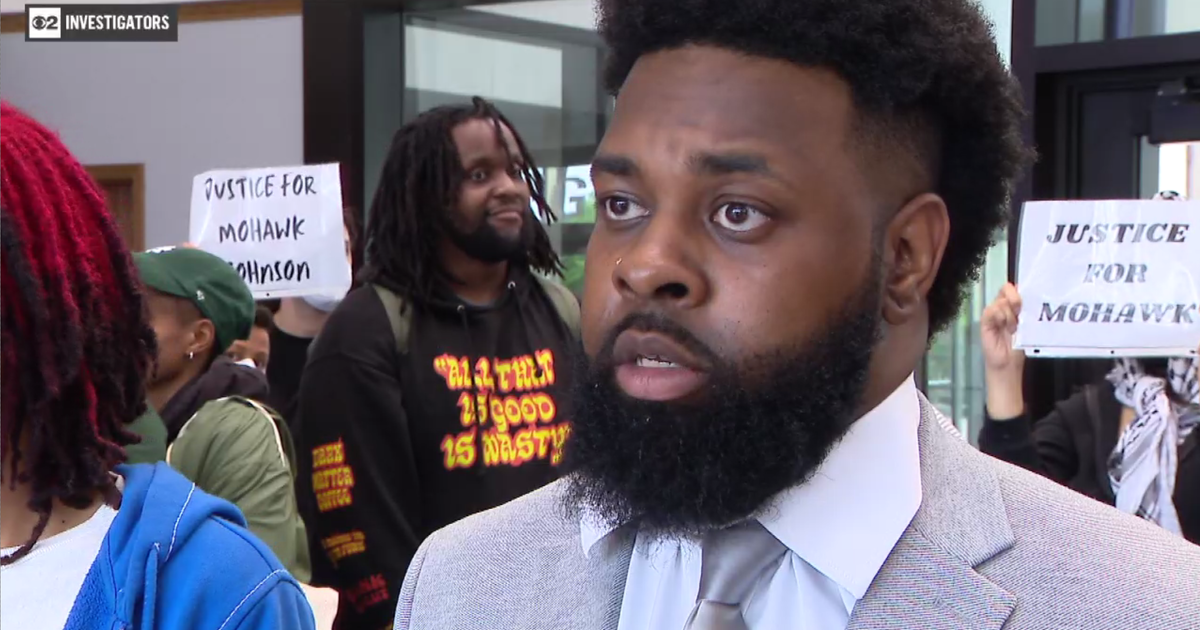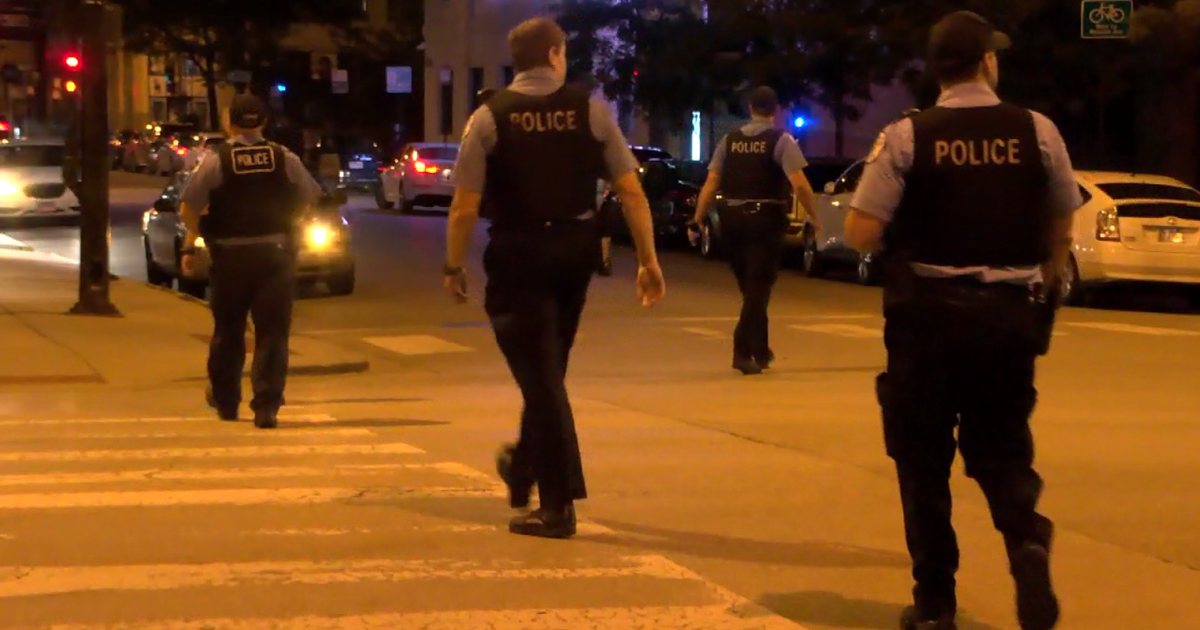Proposal For 'COP House' Pilot Program In Roseland Moving Forward After Compromise Between Alderman And Lightfoot Administration
CHICAGO (CBS) -- Avoiding a potentially heated showdown over a proposal for a new community policing initiative in the Roseland neighborhood, Ald. Anthony Beale (9th) hammered out a compromise with the Chicago Police Department and the Lightfoot administration on Tuesday to pave the way for a so-called "COP House" on a particularly dangerous block in his ward.
Beale said he had been in talks for nearly two years with City Hall and top brass at CPD to bring a community-oriented policing house (COP House) to Roseland, funded by a private donor.
But Mayor Lori Lightfoot had pushed back on his proposal, telling Beale she could not support it without more specifics on how much it would cost, who would pay for it, and how it would fit with CPD's existing community policing strategies.
At a City Council Public Safety Committee meeting on Tuesday, Beale offered up a compromise after lengthy talks with CPD and the Lightfoot administration.
His plan would now require CPD to move forward with the COP House proposal only after meeting several benchmarks:
- A proposed budget from Beale for a two-year pilot program;
- Identification of a funding source vetted by and acceptable to CPD and the city Budget Director;
- Establishing a funding stream with a specific amount and duration;
- And passage of an ordinance appropriating the necessary funds.
The proposed order would also require CPD to take all necessary steps to approve the program "with appropriate safety, security, and community policing protocols."
"Working with Alderman Beale and members of the administration, we have been able to solve some of the challenges that have been raised earlier with earlier questions," said Ald. Jason Ervin (28th), who formally introduced Beale's substitute order to the Public Safety Committee.
Chicago Police Commander Eric Winstrom said CPD still has questions about the feasibility of the COP House program, in particular the costs, but is pleased Beale's changes to his plan allows for additional review of the proposal before the pilot program can actually begin.
"As with any potential CPD program, the COP House proposal should be thoroughly examined for funding, staffing, safety, and liability implications; as well as ensuring it is the right fit for the city of Chicago," he said. "We are supportive of the substitute order and look forward to continuing to work with Alderman Beale to support this initiative."
The Public Safety Committee unanimously backed Beale's proposal after he submitted the compromise he had reached with CPD and Lightfoot's office.
Beale said the COP House proposal was inspired by a similar program in Racine, Wisc., which as five COP Houses. The alderman said there has been a more than 70% reduction in crime in and around Racine since their program started.
"Now, we know Racine, Wisconsin, is not comparable exactly to the city of Chicago, but we can craft our COP House to formulate the city of Chicago, and hopefully we can have some of the same results they have," he said. "If this is successful, the city is successful. We all know we're dealing with carjackings all over the place. We know we're dealing with murders all over the place. This is the opportunity to build at COP House in the heart of a problem area to start building confidence and relationships back between the police and the citizens."
The alderman said he has had at least four meetings with various police superintendents and top police brass over the past two years regarding creation of a COP House in Roseland, and "all of them embraced it as a wonderful idea,"
Beale said he and the financial backers of his plan previously had a home under contract "on the worst block in my ward," but that house has since been sold to a private owner. Since that happened, Beale said there have been five shootings on or near that block, two of them fatal.
"We know our wards. Our commanders know our wards and their districts, and so to go to the heart of the problems in my aera is what we were attempting to do," Beale said.
Beale said he has lined up a private funder who will provide $250,000 for the COP House program, and he said if the full City Council approves his proposal on Wednesday, he will immediately identify the donor.
"My funder has asked me not to disclose who they are until the city embraces this program as a pilot," he said.
Beale said that funder not only will pay to purchase and renovate a home in Roseland to create the COP House, but will pay for any upkeep of the facility; such as utilities, snow removal, trash removal, and grass cutting.
Various rooms in the COP House could be converted to use for reading programs, computer labs, tutoring, and more, to allow for Roseland residents to interact directly with police officers assigned to the facility.
"That builds trust from the ground up," Beale said. "it will save lives, it will bring resources, and the block that we're looking at, we will bring all of the city wraparound services along with it; the Department of Housing, the Department of Buildings to where we can start rehabbing, maybe doing some infill housing, and we take that block back from the ground up."
Ald. Chris Taliaferro (29th), who chairs the Public Safety Committee, was one of several aldermen who commended Beale for thinking outside of the box in an effort to improve the relationship between police and the community and come up with an idea that might help reduce crime in one of the city's more troubled neighborhoods.
"I think we have to continue to push the envelope if we are talking about reducing crime across the board in the city of Chicago," he said. "If we keep doing the same thing over and over and over again, we are never going to see the decreases in crime that we'd all like to see so that our residents can enjoy a good quality of life; particularly on the West Side and on the South Side. We all deserve that throughout this entire city."
Ald. Anthony Napolitano (41st), who like Taliaferro is a former police officer, said he hopes the COP House program is successful enough to expand beyond Roseland.
"I would love to see this throughout the entire city," he said.
The agreement on the COP House program appears to sidestep the potential for a showdown between Beale and Lightfoot. The two have been at odds since she took office and chose Ald. Scott Waguespack (32nd) over Beale to chair the City Council Finance Committee.
Ald. Raymond Lopez (15th), another vocal critic of Lightfoot's, lamented that it took so much effort to reach an agreement.
"What is unfortunate is the fact that politics and pettiness nearly derailed this effort to save lives in Roseland. That is unacceptable," he said. "This Police Department and the superintendent need to work more specifically with aldermen to address local issues without being forced to do so by the entire City Council. That is shameful, that is a disgrace to our city, and it is not who we are as Chicagoans."
Over the past few days, Beale and Lightfoot had exchanged letters regarding her concerns about the original proposal.
Before the changes Beale agreed to on Tuesday, Lightfoot had said she could not support the plan without more information on funding, security, and the specific community policing strategy for his plan.
With the changes Beale agreed to, the project won't go forward without those specific measures in place.
Beale's proposal now goes to the full City Council for consideration on Wednesday.
Also From CBS Chicago:



